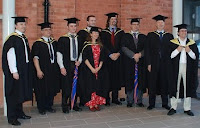 Data Privacy Day 2010 is occurring on January 28th. Data Privacy Day is an annual international celebration to raise awareness and generate discussion about information privacy. In 2009, both the U.S. Senate and House of Representatives recognized January 28th as National Data Privacy Day.
Data Privacy Day 2010 is occurring on January 28th. Data Privacy Day is an annual international celebration to raise awareness and generate discussion about information privacy. In 2009, both the U.S. Senate and House of Representatives recognized January 28th as National Data Privacy Day.
Over the past few years, privacy professionals, corporations, government officials and representatives, academics, and students in the United States, Canada, and 27 European countries have participated in a wide variety of privacy-focused events and educational initiatives in honor of Data Privacy Day. They have conducted discussions, examined materials and explored technologies in an effort to bring information privacy into our daily thoughts, conversations and actions.
“Despite all the benefits of new and innovative technologies, there are doubts and worries that persist about just how much personal information — our digital identity — is collected, stored, used, and shared to power these convenient and pervasive services.”
Richard Purcell, executive director of The Privacy Projects (www.theprivacyprojects.org), organizing sponsor of Data Privacy Day.
Data Privacy Day has also provided an opportunity to promote teen education and awareness about privacy challenges when using mobile devices, social networking sites and other online services.
Everyone is welcome to participate by sponsoring events, contributing writings and other educational resources, joining activities, and taking actions designed to raise privacy awareness.
More information can be found on the event website at: dataprivacyday2010.org.
